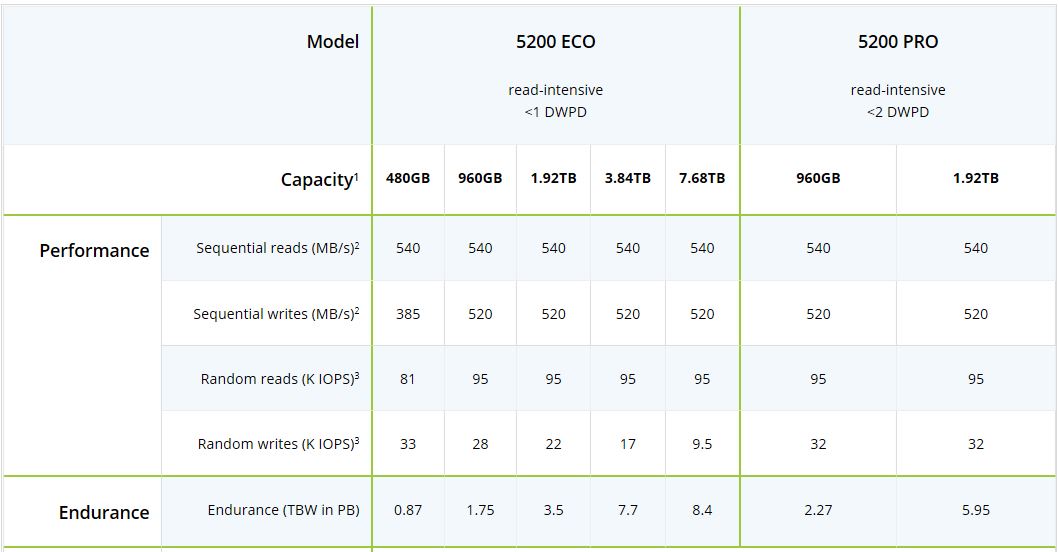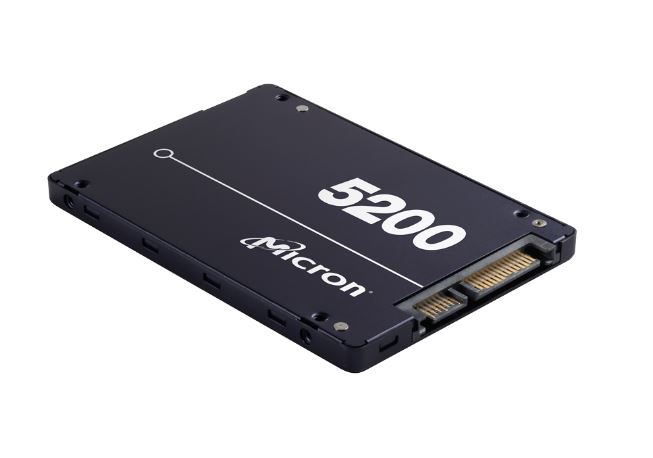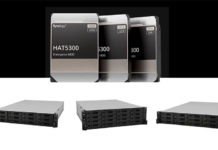Here we are in 2018 and we are covering a SATA SSD announcement. The Micron 5200 enterprise SATA SSD family is designed for those storage situations where you have neither NVMe nor SAS3 available. Surprisingly, there is still a market for this as server vendors continue to add SATA ports to their platforms and sometimes one wants storage that is more rugged and faster than traditional hard drives.
Micron 5200 Enterprise SATA SSD Key Specs
There are two main lines for the Micron 5200 series, the Micro 5200 ECO and Micro 5200 PRO. Here is the table with key specs:

By using Micron’s 64-layer 3D NAND process and TLC, the drives hit capacities of up to 7.68TB. That is a lot for a SATA SSD.
Although a lot of fuss is made about write endurance, at over 8.4PBW rating, the 7.68TB drive has plenty of write endurance. Realistically, these drives are going to be used in write once, read many workloads such as serving cached content. As capacities have grown, writing that much data has become increasingly unlikely so manufacturers have reduced the focus on this metric. The Micron 5200 PRO tops out at 1.92TB and has slightly better random write and endurance specs than its ECO series counterpart.
The 64-layer 3D NAND was part of the Intel-Micron partnership that also yielded the Intel 760p consumer SSD. Micron specs enterprise drives with PLP, however, the consumer drive is much faster with m.2 NVMe drives hitting essentially 5-6x the read performance of SATA III devices.
Final Words
When we heard about this, we were a bit surprised. It is 2018 after all. NAND technology has so far outpaced SATA in terms of performance that performance users will want NVMe. For the segment of the market that is looking for read-intensive SATA drives for their storage, and that are OK with the limitations of the SATA III interface, the Micron 5200 SSD series is an interesting option.



